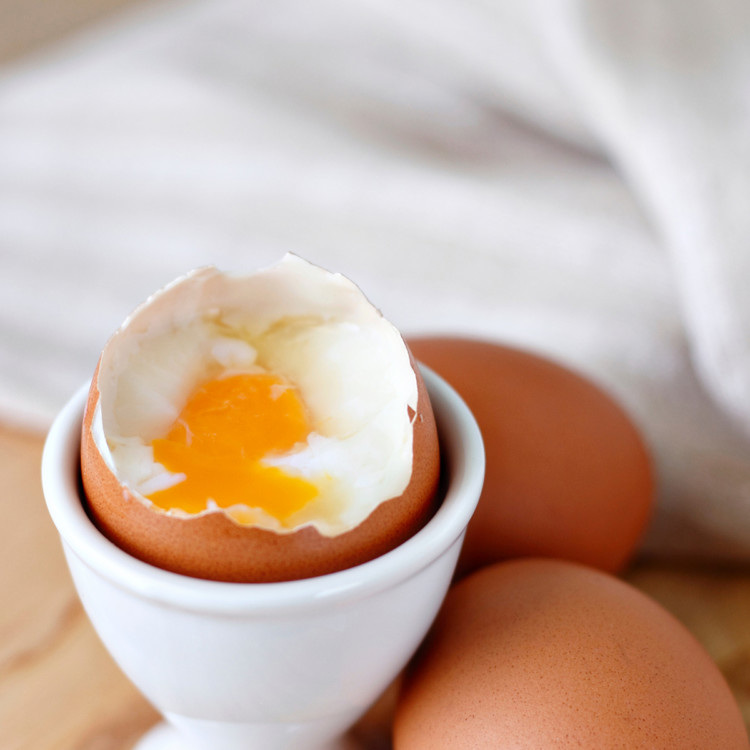
How to Microwave Hard Boiled Eggs
Boiling eggs in the microwave might sound unusual, but it’s a quick and effective method! In this post, I’ll show you how to make Microwave Hard Boiled Eggs safely and easily. Whether you’re a college student, traveling in an RV, staying in a hotel, or just want a fast alternative to stovetop boiling, this method is a game-changer.
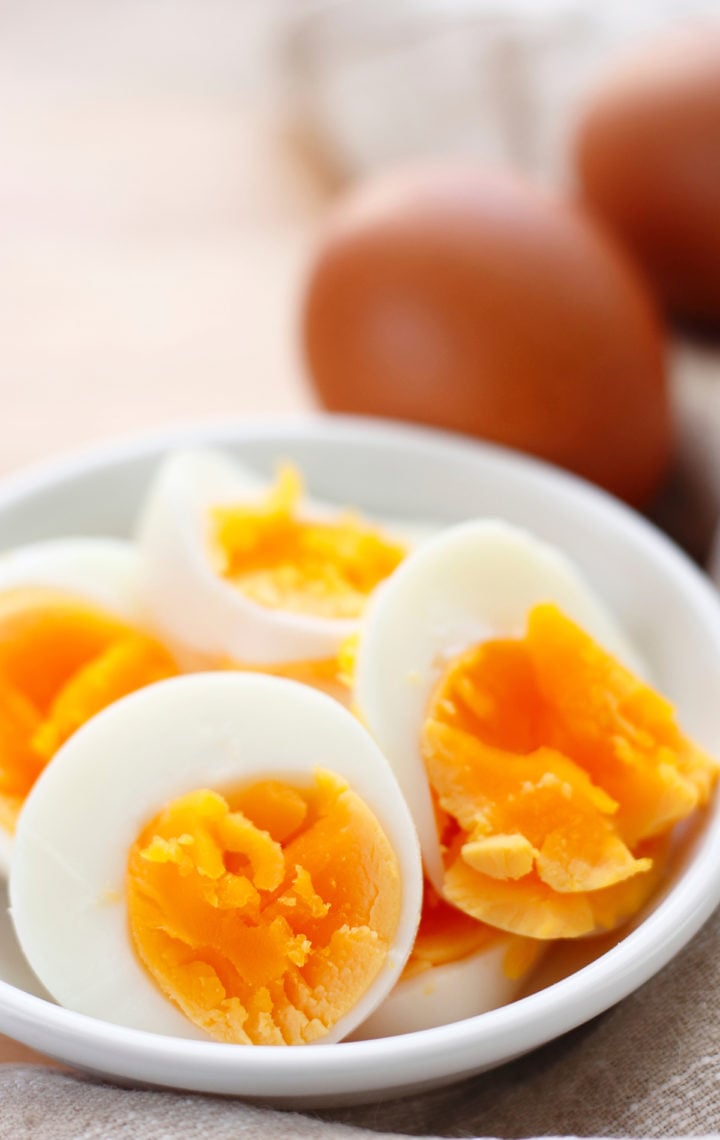
Can You Boil Eggs in the Microwave?
Can you really make hard boiled eggs in the microwave? Yes, and it’s easier than you think!
It may sound unconventional, but boiling eggs in the microwave is quick, easy, and completely safe—as long as you follow the right method.
By using the exact steps in this post, you can hard boil eggs in the microwave safely without worrying about messy explosions.
Need just one or two eggs for a snack? No problem. Want to prep a batch for meal planning? You can do that too!
In this guide, I’ll show you how to hard boil eggs in the microwave step-by-step, so you never have to deal with cracked, overheated eggs or a messy microwave disaster.
Why Hard Boil Eggs in the Microwave vs. the Stove?
There are a few key benefits to microwave hard boiled eggs over the stovetop method:
✔ Faster Cooking Time – No need to wait for a pot of water to boil!
✔ Less Water Needed – Uses just enough to submerge the eggs, making it more efficient.
✔ Fewer Dishes to Clean – No saucepans required, just a microwave-safe bowl.
This method is also perfect for when you don’t have access to a full kitchen—whether you’re:
- In a dorm room with only a microwave available.
- Staying in a hotel and craving a quick protein boost.
- Cooking in an RV and want to minimize cleanup.
- Renovating your kitchen and need an easy workaround.
With the right technique, boiling eggs in the microwave can be a lifesaver in a pinch!
Reader Testimonial
★★★★★
Wondering if microwaving eggs is worth it?
Here’s what one reader had to say:
“When I saw how long this would take, I thought I’d just boil the eggs on the stove, but then I figured I’d try it out. Glad I did! It was nice to just push some buttons and let it go while I did other things. The eggs came out mostly hard, which I’m completely fine with!”
—Alanna
Tools Needed
As with most microwave recipes, you’ll need very few tools to prepare hard boiled eggs in the microwave. Here’s what I recommend having on hand:
- Microwave-Safe Bowl – Large enough to fully submerge the eggs in water.
- Large Mixing Bowl – Used for the ice bath to stop the cooking process.
- Measuring Spoons – To measure the salt (don’t skip this—it prevents eggs from exploding in the microwave!).
- Slotted Spoon – Makes it easy to safely remove the eggs from the hot water.
That’s it! With just a few simple tools, you’ll have perfectly cooked hard boiled eggs in minutes.
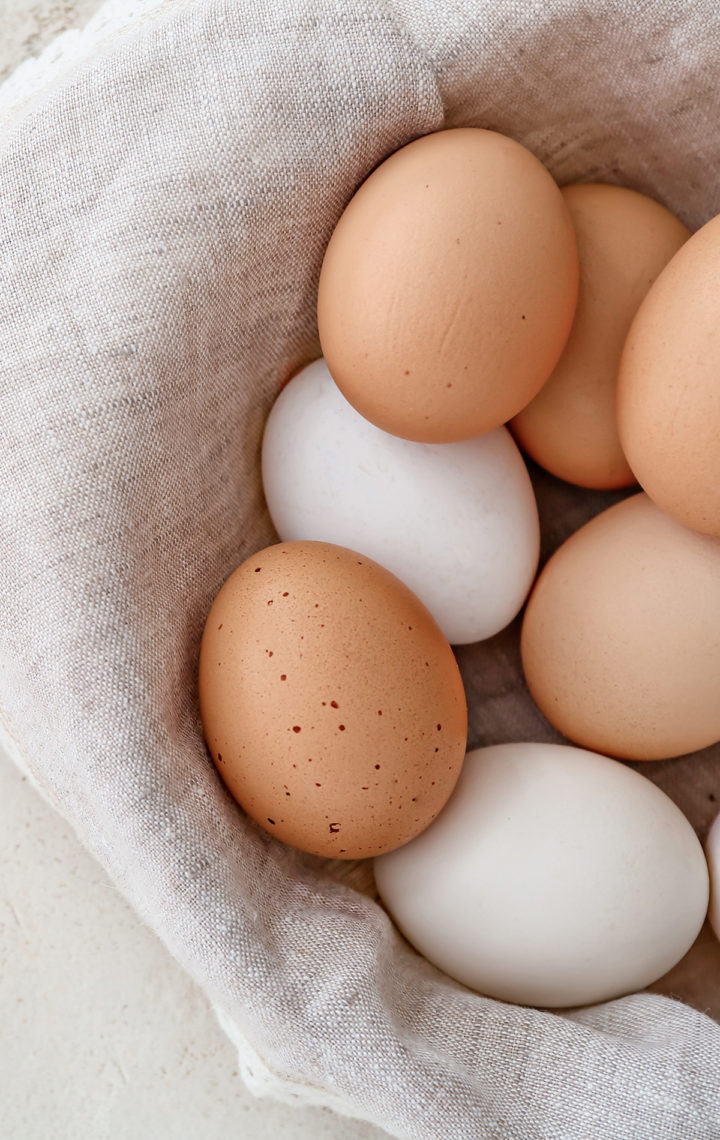
Ingredients for This Recipe
The ingredients for microwave hard boiled eggs are nearly the same as the stovetop method—just a little simpler! Here’s what you’ll need:
- Water – Warm tap water works perfectly.
- Salt – Regular table salt is essential. Do NOT skip it! (It prevents eggs from exploding.)
- Eggs – Any size, color, or type will work.
For the exact measurements to make hard boiled eggs in the microwave, scroll to the bottom of this post for the FREE printable recipe card.
How to Hard Boil Eggs in the Microwave
- Prepare the eggs: Place eggs in a microwave-safe bowl large enough for them to sit in a single layer. Add warm tap water, covering the eggs by ½ inch.
- Add salt: Stir in ½ teaspoon of table salt per egg (1 teaspoon for 2 eggs, 2 teaspoons for 4 eggs, etc.). Do not skip this step—salt prevents explosions.
- Boil in stages: Microwave uncovered on full power for 4 minutes. Let the eggs rest in the microwave for 1 minute, then microwave again for another 4 minutes.
- Let eggs rest in hot water: After cooking, let the eggs sit in the hot water in the microwave for:
• 2 minutes for soft-boiled (runny yolk)
• 6 minutes for medium-boiled (soft yolk)
• 8 minutes for hard-boiled (fully set yolk) - Cool in an ice bath: Use a slotted spoon to transfer eggs to a bowl of ice water. Let sit for 1 minute to stop cooking.
Katie’s Tip: Use a bowl large enough to fully submerge the eggs without stacking them—this ensures even cooking.
The above is simply a quick summary of how to make microwave boiled eggs. Check out the full recipe in the free printable recipe card at the bottom of this post for all the detailed instructions.
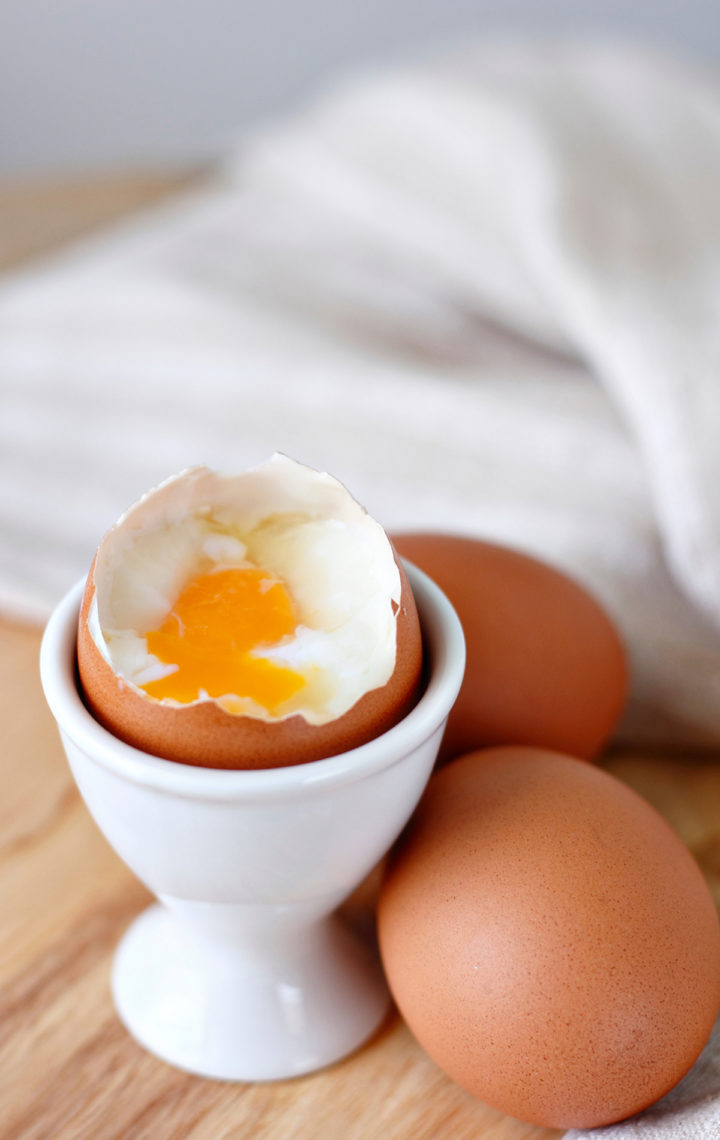
How Long to Boil Eggs in the Microwave
Microwave the eggs for 8 minutes total on full power, with a 1-minute rest period at the halfway point. Then, let the eggs rest in the hot water as listed below:
- Soft boiled eggs with a runny yolk: Let rest in the hot water for an additional 2 minutes
- Medium boiled eggs with a soft yolk: Let rest in the hot water for an additional 6 minutes
- Hard boiled eggs with a fully cooked yolk: Let rest in the hot water for an additional 8 minutes
Katie’s Tip: The cook time for microwave hard boiled eggs will remain the same no matter what. However, the rest time will vary depending on how firm you like your egg yolks.
Tips for Success
- DO NOT SKIP THE SALT! – This is non-negotiable. Salt prevents the eggs from exploding. Add ½ teaspoon of salt per egg to the bowl before microwaving. Skipping this step could lead to a messy (and potentially dangerous) egg explosion.
- Use a large bowl – Choose a microwave-safe bowl big enough to fit the eggs in a single layer with space for water. A larger bowl also prevents the water from bubbling over.
- Microwave on full power – Double-check that your microwave is set to high power (full strength) for the best results.
- Handle with care – The bowl will be extremely hot after microwaving. Use oven mitts or a thick kitchen towel to safely remove it from the microwave.
- Test with two eggs first – Microwave wattages vary, which can slightly affect cooking times. Start with just 2 eggs as a test run before making a larger batch.
- Always use an ice bath – As soon as the eggs finish cooking, transfer them to an ice bath for at least 1 minute. This stops further cooking and makes peeling much easier.
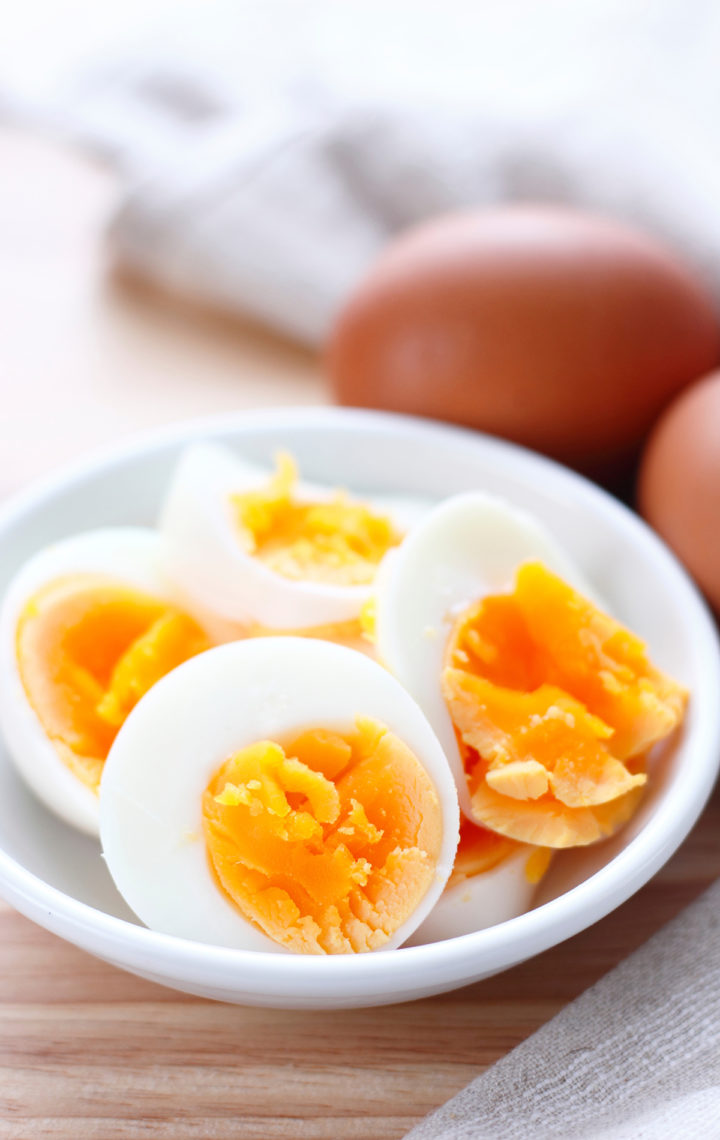
Recipe FAQs
Got questions about microwave hard boiled eggs? Here are answers to some of the most common questions! If you have any others, feel free to ask in the comments, and I’ll be happy to help.
How do you boil an egg in the microwave without it exploding?
There are two key things to remember when boiling eggs in the microwave:
- Cover the eggs with ½ inch of water. If they’re not fully submerged in water, they may explode.
- Add ½ teaspoon of salt PER EGG. The salt plays a critical role in preventing the eggs from exploding.
If you do these two things, you will avoid the eggs bursting in their shells.
Why does salt prevent eggs from exploding in the microwave?
Salt increases the boiling point of water and helps distribute heat more evenly, reducing the chance of sudden steam buildup inside the egg.
This prevents pressure from building up too quickly, which is what causes eggs to burst in the microwave.
Why do boiled eggs explode in the microwave?
Boiled eggs explode because steam gets trapped inside the shell. Since the microwave heats eggs quickly, pressure builds up without a way to escape—leading to an explosion.
The solution? Always cook eggs fully submerged in water with added the proper amount of salt to prevent this.
Can you make a boiled egg in the microwave without water?
No, you cannot boil eggs in the microwave without water. Without water to absorb and distribute the heat, steam will rapidly build inside the shell, causing the egg to explode (and creating a huge mess!).
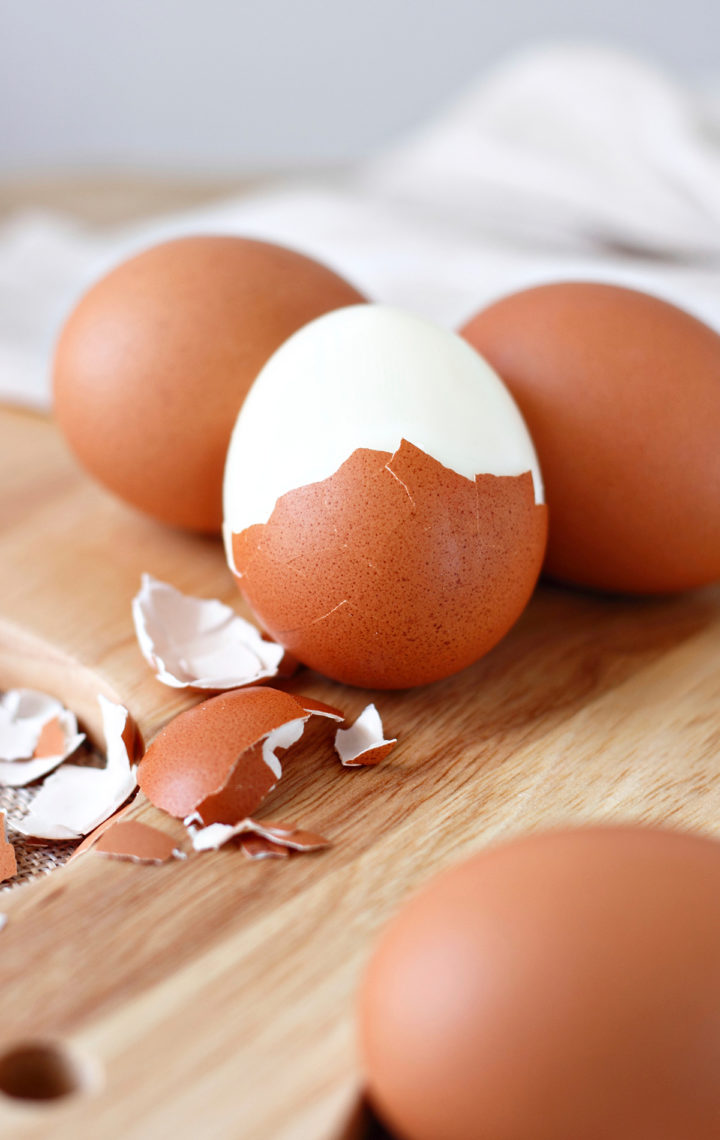
Storage Instructions
When storing microwave hard boiled eggs, I recommend storing them in a sealed container or sealed zip top bag in the refrigerator.
Cooked eggs, especially already peeled eggs, can cause odors in the refrigerator. Keeping them sealed helps keep your refrigerator smelling fresh.
- In the fridge: Store the microwave boiled eggs in the refrigerator — peeled or unpeeled — for up to 1 week.
- In the freezer: You can freeze hard-boiled eggs that have been shelled. However, the egg whites will become tough and rubbery. The hard boiled egg will still be safe to eat, the texture just may be unpleasant.
Katie’s Tip: If you do find yourself with some smells in your refrigerator, try these tips for deodorizing in your kitchen.
Recipes Using Hard Boiled Eggs
Enjoy your hard boiled eggs as is, or add them to one of the following recipes:
- Buffalo Chicken Cobb Salad – A spicy twist on the classic Cobb salad with buffalo grilled chicken, blue cheese, avocado, and hard-boiled eggs for a flavorful, protein-packed meal.
- Classic Potato Salad – No summer potluck or BBQ is complete without this creamy, tangy potato salad featuring hard-boiled eggs, celery, onion, and a mayo-based dressing.
- Southwest Breakfast Bowl – A hearty, high-protein breakfast bowl loaded with roasted sweet potatoes, eggs (any style), black beans, spinach, avocado, and bacon.
- Bean and Egg Breakfast Tacos – A quick and flavorful breakfast taco filled with eggs, avocado, black beans, salsa, and fresh cilantro inside a warm tortilla.
- Macaroni Salad – A picnic favorite! This classic macaroni salad features a creamy dressing with hard-boiled eggs, crunchy veggies, and mix-ins of your choice.
Katie’s Tip: You can also use these microwave hard boiled eggs to make dyed Easter eggs, deviled eggs, and egg salad!
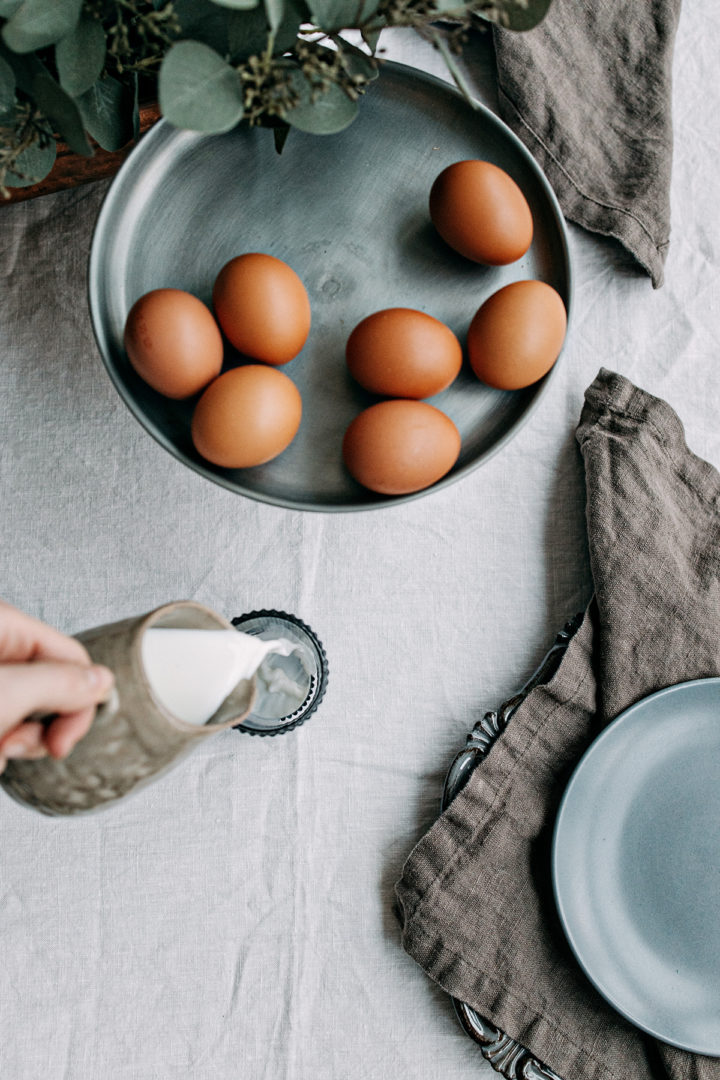
Try Making Microwave Boiled Eggs at Home!
Next time you need a quick and easy way to hard boil eggs, try this microwave method!
Did you like this recipe? Leave a comment and rate it below—your feedback helps others and always makes my day!
Made this recipe? Snap a photo and tag me on Instagram @goodlifeeats and #goodlifeeatsrecipes. I’d love to see your photo of microwave hard boiled eggs!
More Egg Tutorials
Want to master more egg-cooking techniques? Check out these helpful guides. Which egg tutorial is next on your list? Let me know in the comments!
- Easy Peel Hard-Boiled Eggs – Learn the best method to make hard-boiled eggs that peel effortlessly every time.
- How to Bring Eggs to Room Temperature Quickly – Discover four easy ways to bring eggs to room temp for baking and cooking.
- How to Pasteurize Eggs at Home – Perfect for homemade eggnog, meringue, and Caesar dressing!
- How to Freeze Eggs – Learn how to preserve eggs for baking, whether raw or cooked.
- How to Cook Scrambled Eggs – Get fluffy, flavorful scrambled eggs every time—plus tips on whether to use milk or water!
- How to Separate Eggs – A must-know skill for making angel food cake, macarons, and meringues.
- How to Measure Partial Eggs – Learn how to accurately measure eggs when adjusting recipes.
Stay Inspired in the Kitchen!
Want more delicious recipes, kitchen tips, and meal inspiration? Sign up for the Good Life Eats Newsletter and get:
✔ Tried-and-true recipes—from quick weeknight meals to special occasion favorites.
✔ Seasonal meal ideas—helping you make the most of fresh, in-season ingredients.
✔ Time-saving kitchen tips—boosting your confidence and creativity in the kitchen.
Did you know that you can hard boil an egg in the microwave?
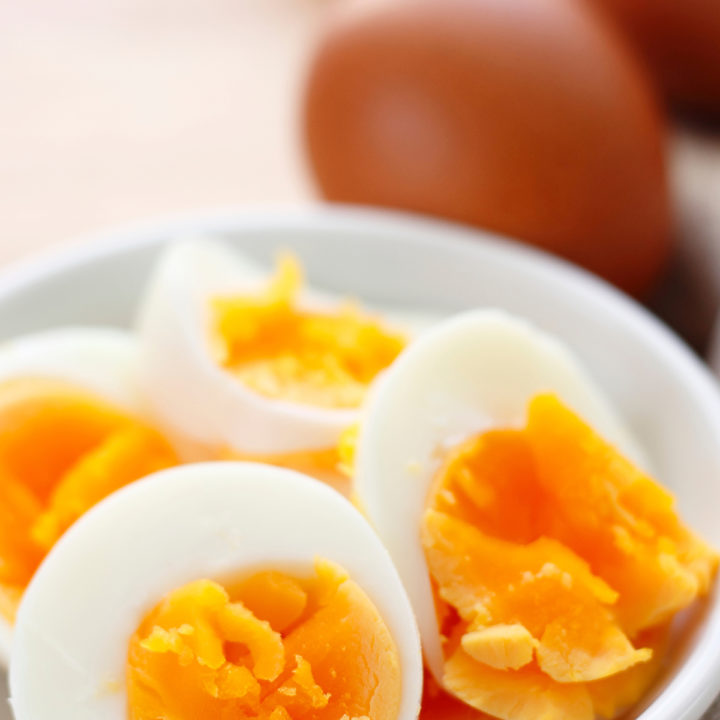
Microwave Hard Boiled Eggs
Boiling eggs in the microwave may sound strange, but it actually works! In this post, I’ll share how to make Microwave Hard Boiled Eggs quickly and safely. This method is perfect for anyone with limited access to a proper kitchen, such as college students, RV owners, and hotel guests.
Ingredients
- 2 eggs
- 1 teaspoon salt
- Water
Instructions
- Before cooking the eggs, you need to prepare an ice bath. To do so, fill a large bowl with ice and top off with tap water.
- Place your desired number of eggs into a microwave-safe bowl. Make sure the eggs fit in the bowl in a single layer and are not stacked on top of each other (this ensures even cooking in the microwave).
- Fill the bowl with enough tap water to cover the eggs by about ½ inch.
- Add ½ teaspoon of table salt per egg to the bowl (i.e. 1 teaspoon for 2 eggs, 2 teaspoons for 4 eggs, etc.). This is what prevents the eggs from exploding in their shells.
- Microwave the eggs on full power for 4 minutes, uncovered.
- After 4 minutes, let the eggs rest in the microwave for 1 minute.
- Then, cook the eggs for another 4 minutes.
- Once the eggs are done cooking, leave them in the microwave in the hot water for:
- Soft boiled eggs with a runny yolk: Let rest in the hot water for an additional 2 minutes
- Medium boiled eggs with a soft yolk: Let rest in the hot water for an additional 6 minutes
- Hard boiled eggs with a fully cooked yolk: Let rest in the hot water for an additional 8 minutes
Nutrition Information:
Yield: 2 Serving Size: 1Amount Per Serving: Calories: 72Total Fat: 5gSaturated Fat: 2gTrans Fat: 0gUnsaturated Fat: 3gCholesterol: 186mgSodium: 1133mgCarbohydrates: 0gFiber: 0gSugar: 0gProtein: 6g
GoodLifeEats.com offers recipe nutritional information as a courtesy. This provided information is an estimate only. This information comes from online calculators. Although GoodLifeEats.com makes every effort to provide accurate information, these figures are only estimates.


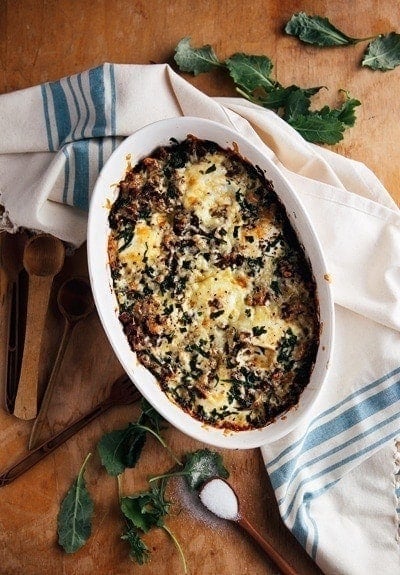


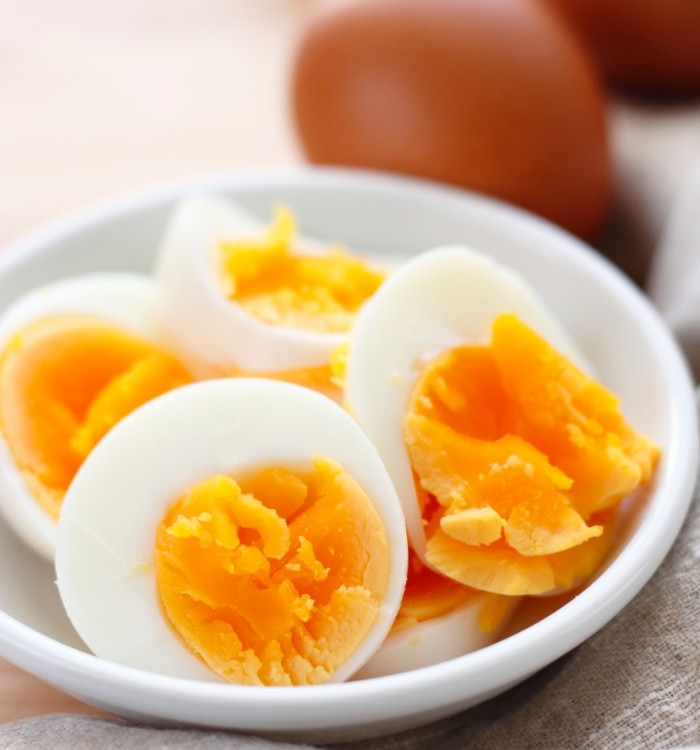
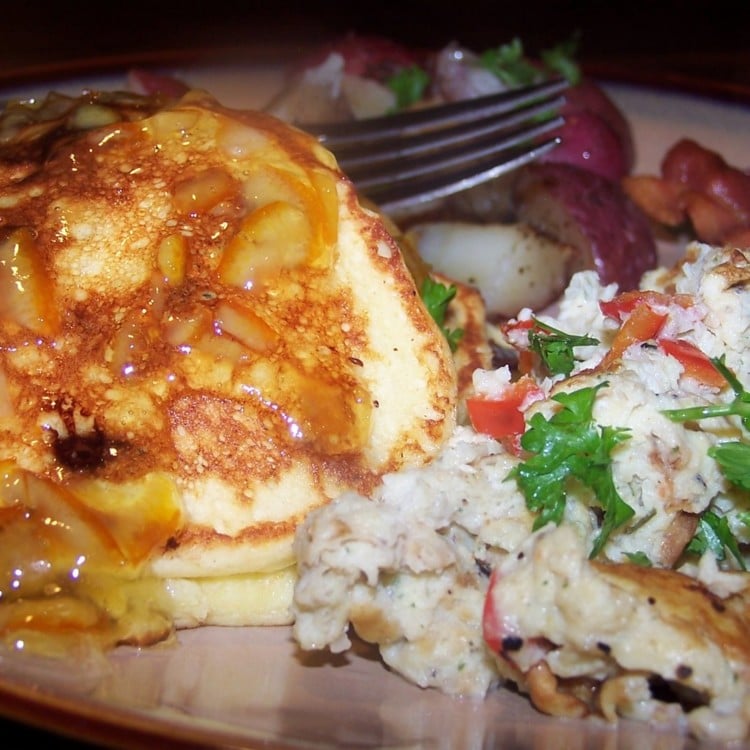




Alanna says
When I saw how long this would take, I thought Id just boil the eggs on the stove, but then thought I’d try it out. Glad I did! it was nice to just push some buttons and let it go while I did other things. The eggs came out mostly hard. Which I’m completely fine with.